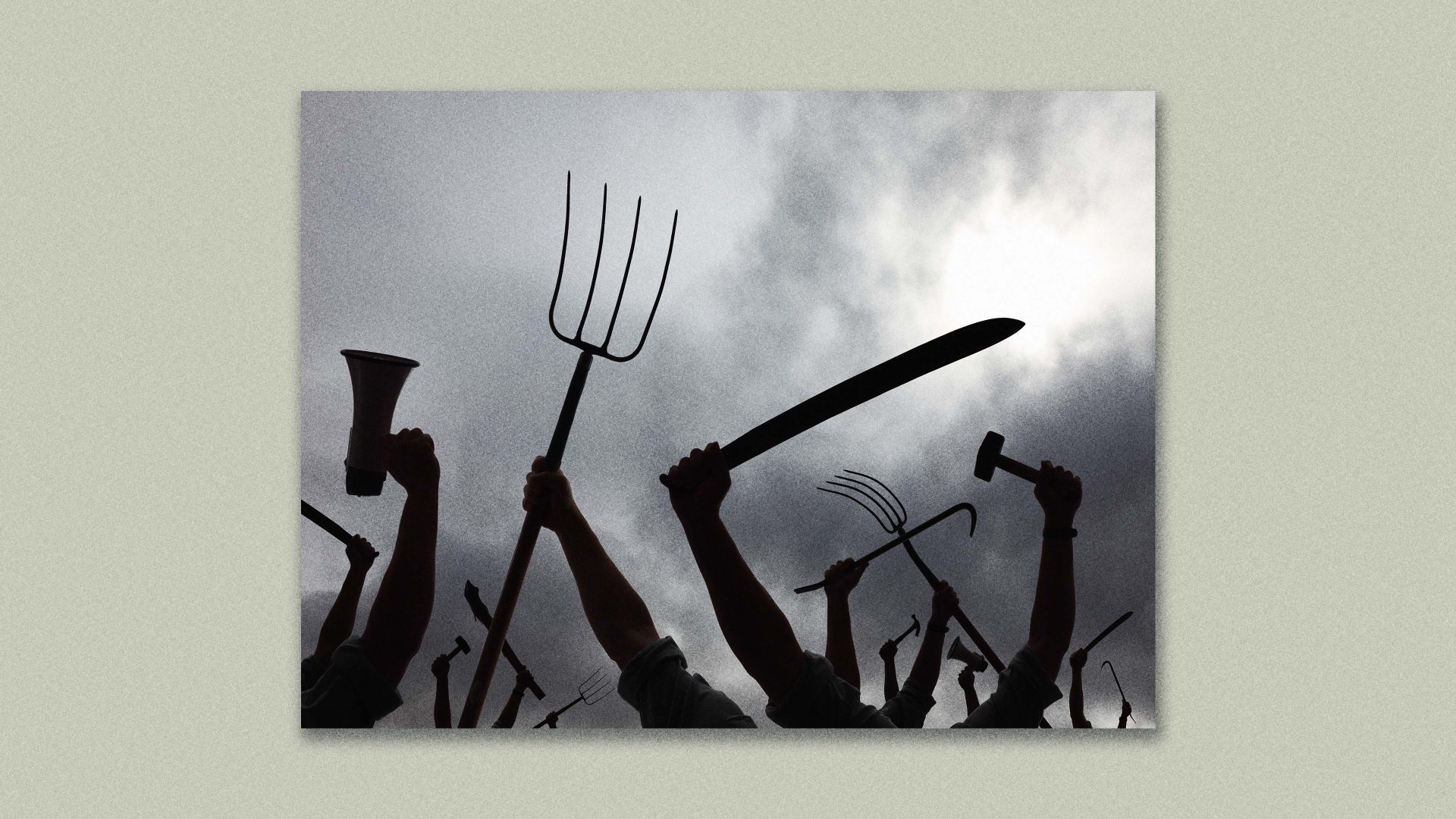I enjoyed your coverage of Boris Johnson at the Privileges Committee (TNE website; theneweuropean.co.uk). It should be clear from the proceedings, and from the pathetic scale of the rebellion against Rishi Sunak’s Windsor Framework that Johnson and his remaining cronies managed to muster on the same day, that he is finished.
However, what purpose will be served by suspending Johnson for 10 days and triggering a recall election? All the polls indicate he will lose Uxbridge and South Ruislip at the general election, which is probably less than 18 months away.
Removal by what he and his followers will no doubt call a metropolitan elite who underestimate his deep connection with the people will only serve to build up a martyrdom myth – always dangerous when employed by populist narcissists.
Why not heavily censure Johnson but leave him as an MP, condemned to spending his remaining time in Westminster as a humiliated fringe figure before the almost inevitable rejection at the ballot box?
Barbara Callan
Stockport, Cheshire
While I hope that those who lost loved ones get closure from whatever the Privileges Committee decides, I simply do not trust Tory MPs to vote for meaningful punishment.
Instead, I think a committee should investigate Johnson over Brexit.
Seven years ago we had enough farm workers. Our NHS, care homes and hospitality were not crying out for staff. Our fishermen could export their catch. There were no queues on the road to Dover.
Our rivers and beaches were legally protected. Our musicians could travel. Small businesses could trade in Europe without expense and delay. Our young people had Erasmus. Our scientists had Horizon.
And the UK was a gateway to EU markets, so China and Japan invested in manufacturing. All this was lost because of the lies of Pinocchio and Michael Gove.
Janet Jackson
Via Facebook
In his evidence to the Privileges Committee, Boris Johnson repeated ad nauseam that he considered farewell gatherings at Downing Street to be within the rules.
Surely, someone on the committee should have asked him whether he considered a funeral to be a “farewell gathering”.
David Druiff
Brighton, Sussex
Asylum lunacy
James Ball (“Taking the lunacy out of asylum”, TNE #334) uses the terms “people smuggling” and “trafficking” as if they are synonymous. People smuggling may sometimes result in trafficking, but it is important to distinguish between the two.
Smuggling involves illegal border crossing and entry; smuggled people usually give their consent. Trafficking does not necessarily involve crossing a border. Smuggling is a crime against the state, while trafficking is a crime against the person.
Geoff Corre
Rainford, Merseyside
I read James Ball’s typically perceptive article on Sunday morning, just before reading accounts of how the idiotic Jonathan Gullis MP and other far-right Tories plan to make their dangerous, cruel and probably illegal proposals even worse. “Putting more lunacy into asylum”, then.
Sara Cohn
James Ball often writes highly informative articles but is in moral fantasyland in “Taking the lunacy out of asylum”. Migration has enriched many societies, but believing claims that large-scale movement of people to developed countries benefits “flagging” population growth and counters “ageing populations” is environmentally and economically illiterate.
Too many people simply have no concept of the impact of ever-growing numbers on infrastructure, food security and sustainability of nations. The UN secretary-general warns “we are sleepwalking into a disaster”.
As more countries struggle with poverty, conflict, extremism, corruption, climate change and natural resource depletion, huge sections of the world’s rapidly growing population will look in vain for a better life. Western states cannot possibly handle this influx without suffering growing internal decline.
Brian McGavin
Wilmslow, Cheshire
It is wrong to say that irregular cross-channel migration is not a serious problem. In this context, it should be remembered that immigration was a key issue in the 2016 referendum, with the Brexiteers deliberately confusing labour mobility within the EU with irregular migration from outside Europe, and falsely holding the EU responsible for both.
Unfortunately, Remain made no serious attempt to counter these Brexit lies. Even today, EU-friendly politicians are allowing Nigel Farage and various Tories to mount a completely spurious campaign in favour of leaving the European Convention on Human Rights on the pretext that it will solve the migration crisis.
Cooperation with Europe is the key to dealing with this problem and Suella Braverman’s bill, by seriously breaching international law, makes that impossible. That is why it should be opposed.
Ed Kelly
St Helens, Merseyside
Special adviser: “Home secretary, Brazilian migrants have landed in Dover!”
Suella Braverman: “My god, that’s terrible! How many is a Brazilian?”
Bob Hale
Portishead, Somerset
True Brit
I’ve had the argument outlined in Simon Barnes’s “Bloody Invaders…” (TNE #334) with “completely British” people many times. I am always amazed that even though they are aware of the history of the British Isles, they are completely convinced that their bloodline is still purely British.
When they mention the royal family as an example of Britishness, I give up.
Teresa Lorimer
Via Facebook
I am a great admirer of Simon Barnes’s work, and he shall be forgiven for placing the Glorious Revolution in 1768-9 (by which time we were being ruled by those pesky Hanoverians).
Among the soft power consequences of European immigration, Simon might also have mentioned the “quintessentially English” hop gardens of Kent, the brickwork and tiles that grace our historic towns (both largely owing their development to Flemish or Dutch immigrants), and he could have expanded on the contribution of the Huguenots (Sheffield cutlery, textiles, the banking sector etc).
Our history is of course littered with instances of violent dissent by those who were already settled here against these benign “invasions”. No doubt our ancestors were unable to foresee the benefits that would accrue 50 or 100 years later, and it is likely that such attitudes will never change, however much we would prefer them to.
Nigel Britton
Ed strong
Re: Don McCubbin’s letter in praise of Edward Heath (Letters, TNE #334). The contrast between Edward Heath and today is stark. Boris Johnson in effect facilitated a reverse takeover of the Tory Party by far-right Ukip/Brexit Party types, and more moderate one-nation Tories were purged.
Although Johnson and Dominic Cummings have both gone, the effects of what they did are very much still with us and will remain so for a long time.
Tony Stopyra
It should be noted that Edward Heath’s political secretary, Douglas Hurd, was the last of the Oxbridge old Etonians to have any notion of integrity and public service.
Peter Geall
Edward Heath was useless but compares favourably with even the worst of today’s Tories! Plus he took us into Europe.
Lawrie Holtby
Alien life
Jonty Bloom’s “Brexit has ruined everything, everywhere, all at once” (TNE #334) just confirms that the Tories live in a parallel universe. Just listen to Jacob Rees-Mogg, Nadine Dorries, Suella Braverman and journalists like Sarah Vine.
Aline Tayar
Via Facebook
Movie magic
What a warm and funny tribute to the late director Hugh Hudson in Alastair Campbell’s Diary (TNE #334). Hudson’s Kinnock: The Movie is still unrivalled.
Given the lessons of British politics in the last few years, how telling that his Chariots of Fire seems to be remembered today as a paean to British exceptionalism, rather than a lesson about the corrosive influences of antisemitism and classism.
Philip Gold
A lovely tribute from Alastair Campbell to Hugh Hudson. His 1985 flop Revolution, starring Al Pacino, is a far stronger movie than its reputation suggests and also inspired the Comic Strip’s magnificent The Strike, with Peter Richardson playing Pacino playing Arthur Scargill. I’m sure even Hudson was amused.
Peter Daly
Easy reads
Encouraging to see in “Siblings divided by the wall” (TNE #334) that the book Die Geschwister has been translated and is available to buy in the UK.
I can also recommend another great postwar book. I have read Arno Surminski’s towering Jokehnen in German, mixed with Prussian dialect, and it was very hard work. Thankfully it is now available in translation.
Chris Shepherd
No triumph
I’m just a bloke – so what do I know? – but to me, James Stewart’s posture in the final shot of Vertigo is that of appalled realisation of what his stupidity has led to rather than “standing triumphant” as Bonnie Greer confidently stated in “Hitch and miss” (TNE #333).
Richard Chatten
Crystal Palace, London
Pooh in Russia
I’d love to see how the Russians interpreted Sesame Street (“Puppets and Perestroika”, TNE #333). The USSR studios had a well-deserved reputation for their children’s animation, backed by a long history of folk tales. They also worked wonders reinterpreting western tales – check out Vinni Pukh, the USSR’s reworking of AA Milne’s beloved Bear of Little Brain.
Mark Palmer
Support Scots
Yet another edition of TNE arrives without any significant coverage of what is happening on the political scene in Scotland, even though you (reluctantly?) allowed some positive letters from Martin Roche and others to be printed.
You may recall that the people of Scotland voted overwhelmingly to remain within the EU, and support for that desire has grown substantially in the country since then. All the so-called mainstream parties in Scotland (Labour, Liberal Democrat and Conservative) now accept Brexit and seek to make it “work”, but it is abundantly clear that it does not and cannot work for Scotland.
The printed media in Scotland are largely hostile to the idea – please don’t join their ranks. You might consider supporting the idea of Scottish independence as a first step towards England’s re-entry, in time, into the EU also.
Richard Ross
As a very occasional reader of TNE, I bought issue #334 hoping to read some considered analysis of the March 15 elections in the Netherlands. This was not to be. The success of the “Green Left” and the rise of the Farming Party are surely worth some thoughtful consideration.
Chris O’Neill
Coverage of the new SNP leader can be found on our website; we will cover the implications of the Netherlands regional elections in future issues – Editor
Knight watch
I’m surprised that anyone, of whatever persuasion, could think Stanley Johnson might even be eligible to be considered for a knighthood. Apart from never having made a useful contribution to British society, he is now, of his own volition, a French citizen; thus, as far as I can see, rendering himself ineligible for UK honours.
Although a number of non-British and non-Commonwealth dignitaries have been honoured by our extremely archaic system, they have tended to fall into the category of heads of state, or those whose charitable works have deserved recognition, the evidence for which, as far as Mr Johnson is concerned, seems to be rather thin on the ground.
It is, of course, the moment to review such an archaic system, rather than discuss the merits or demerits of such an individual, but as with our hoped-for return to European membership, I guess we have to take things one step at a time.
Hetty Sookias
Charlbury, Oxfordshire
Black and blue
Picked up my new passport from the passport office in Newport yesterday. We need a small child to tell the Brexit emperors that the colour has been changed from Euro maroon to black rather than blue.
John Hirst
Bath, Somerset



